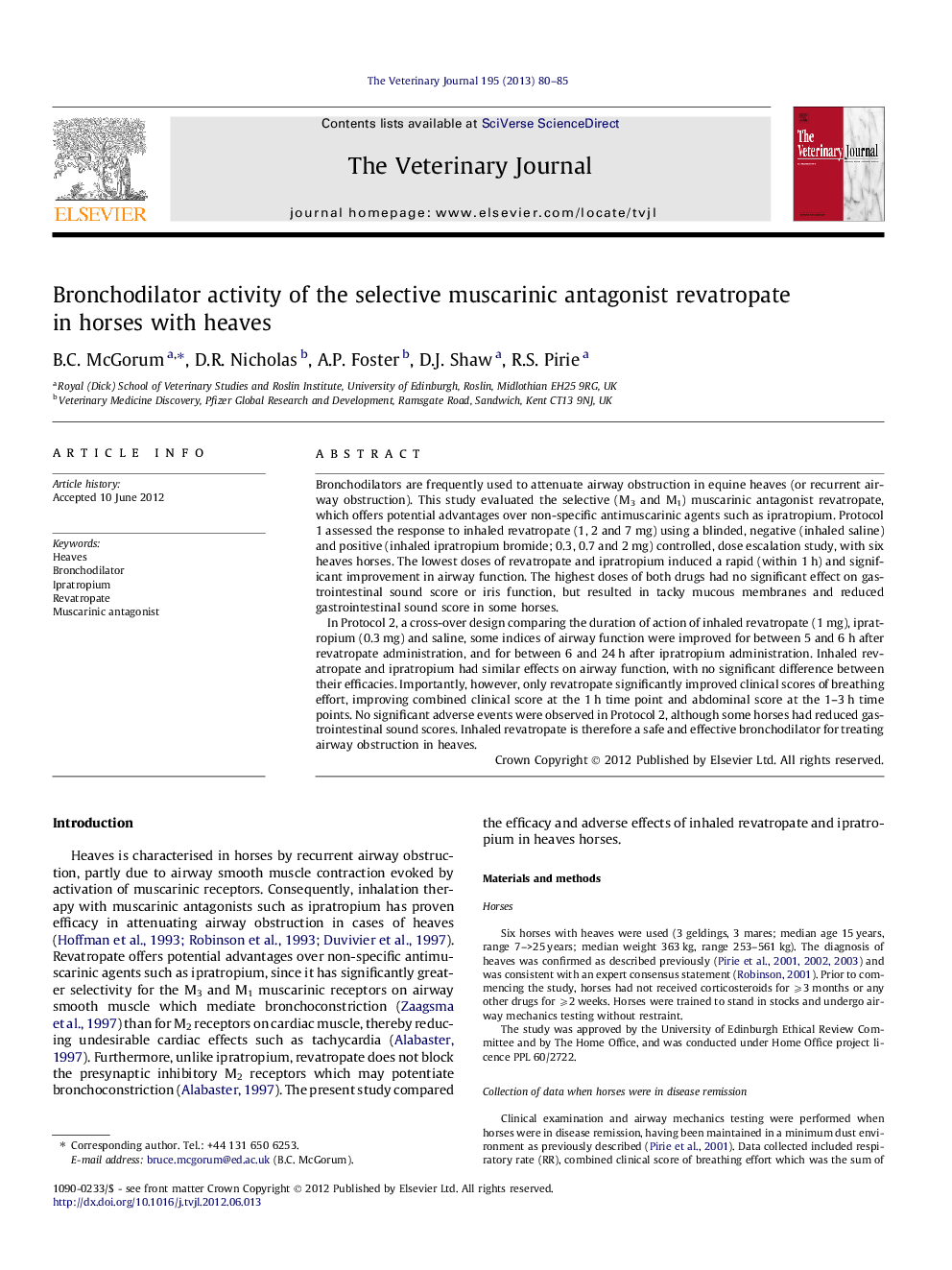| Article ID | Journal | Published Year | Pages | File Type |
|---|---|---|---|---|
| 2464194 | The Veterinary Journal | 2013 | 6 Pages |
Bronchodilators are frequently used to attenuate airway obstruction in equine heaves (or recurrent airway obstruction). This study evaluated the selective (M3 and M1) muscarinic antagonist revatropate, which offers potential advantages over non-specific antimuscarinic agents such as ipratropium. Protocol 1 assessed the response to inhaled revatropate (1, 2 and 7 mg) using a blinded, negative (inhaled saline) and positive (inhaled ipratropium bromide; 0.3, 0.7 and 2 mg) controlled, dose escalation study, with six heaves horses. The lowest doses of revatropate and ipratropium induced a rapid (within 1 h) and significant improvement in airway function. The highest doses of both drugs had no significant effect on gastrointestinal sound score or iris function, but resulted in tacky mucous membranes and reduced gastrointestinal sound score in some horses.In Protocol 2, a cross-over design comparing the duration of action of inhaled revatropate (1 mg), ipratropium (0.3 mg) and saline, some indices of airway function were improved for between 5 and 6 h after revatropate administration, and for between 6 and 24 h after ipratropium administration. Inhaled revatropate and ipratropium had similar effects on airway function, with no significant difference between their efficacies. Importantly, however, only revatropate significantly improved clinical scores of breathing effort, improving combined clinical score at the 1 h time point and abdominal score at the 1–3 h time points. No significant adverse events were observed in Protocol 2, although some horses had reduced gastrointestinal sound scores. Inhaled revatropate is therefore a safe and effective bronchodilator for treating airway obstruction in heaves.
